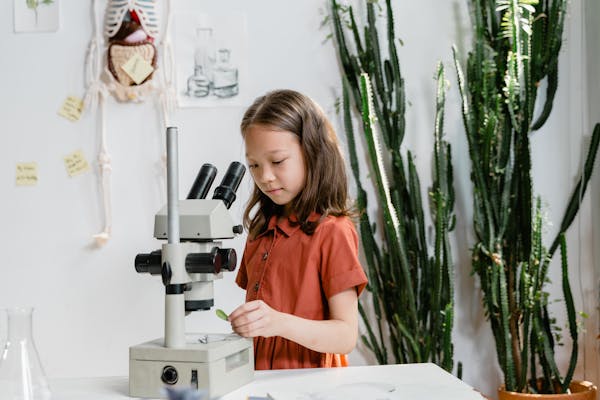Introduction:
Student life is often regarded as one of the most transformative phases of a person’s journey. It's a time full of possibilities, self-discovery, challenges, and learning. But beyond the classroom, exams, and lectures, the real growth of a student lies in how they evolve mentally, emotionally, socially, and morally. In this blog, we’ll explore how students grow in life, not just academically but as complete human beings.
1. Academic Growth: Foundation of Knowledge
Academic growth is the most self-evident element of student development. From acquiring the skills to read and write in elementary school to grasping intricate subjects in college or university, students build their intellectual muscle incrementally.
Critical Thinking: Students learn to analyze facts, assess arguments, and resolve dilemmas. This rational thinking molds their life decision-making abilities.
Curiosity and Exploration: Through various subjects, they discover a range of areas—science, arts, history, technology—and find their passion and probable field of career.
Time Management and Discipline: The school organization compels students to work on time, adhere to deadlines, and remain dedicated to objectives—habits that prove useful in adult life.
Academic development is not merely about grades but about learning a mindset that respects learning and curiosity.
2. Emotional Growth: Building Inner Strength
Student life is also full of emotional ups and downs—triumphs, setbacks, friendships, break-ups, pressure, and expectations. These influences mold emotional intelligence.
Resilience: Students learn to handle failures in academics, peer pressure, or rejection. Each failure teaches them how to deal with it, get better, and attempt again.
Self-Awareness: They start understanding their emotions, triggers, positives, and negatives. Self-awareness assists them in handling stress and making good life decisions.
Empathy and Empathic Understanding: Through relationships and interactions, students become more empathetic and learn to appreciate others' feelings and perspectives.
Emotional maturation is what makes students ready to tackle the real world with confidence and composure.
3. Social Development: Learning to Connect and Cooperate
No student develops alone. From classrooms to playfields, group projects to extracurricular activities, social interactions are responsible for building personalities.
Communication Skills: Regular interaction with peers and teachers improves speaking, listening, and expression—abilities crucial in all walks of life.
Teamwork and Leadership: Team events imbue students with the importance of collaboration, compromise, and leadership. Students are taught to work collaboratively and lead responsibly.
Building Friendships and Networks: Friendships that are formed in student life tend to last a lifetime. These friendships offer emotional support and future networking opportunities.
Social maturity takes time to develop but becomes a support structure of success and fulfillment in personal and professional life.
4. Moral and Ethical Development: Establishing Values and Integrity
Students are constantly confronted with dilemmas where they are required to make the correct decision and differentiate between right and wrong. How they react to such dilemmas determines the character of the individual.
Responsibility and Accountability: From getting an assignment done to heading a project, students learn to be accountable for their actions.
Honesty and Integrity: Consequences of cheating, dishonesty, or shortcuts instill in them the importance of honesty and diligence.
Respect for Diversity: In multicultural classrooms, students encounter individuals with varied cultures, religions, and lifestyles. Through this exposure, they practice tolerance and respect for each other.
Ethical development turns students into good citizens who enrich society.
5. Personal Growth: Becoming Independent and Confident
One of the most significant things in student life is forging a personal identity—knowing who they are and what they believe in.
Decision Making: From deciding subjects to matters of personal concern, students learn to make good choices.
Independence: College life or hostel experience makes them learn how to live independently—money, food, routines, and life without parental assistance.
Goal Setting: Students learn to establish short-term and long-term goals, and how to plan, prioritize, and work towards them with dedication.
Personal growth is to become an independent, self-assured individual who has faith in one's ability.
6. Growth Through Challenges: Turning Struggles into Strengths
There is no travel without struggles. Every learner experiences periods of confusion, fear, failure, and doubt. But it is through these that true growth occurs.
Conquering Fear of Failure: Exams, competitions, and outcomes instill fear, but every failure becomes a learning experience in remaining steadfast.
Adjusting to Change: From school changes to career switches, students learn to remain flexible and adjust to life's ever-changing path.
Asking for Help and Guidance: Students realize the importance of mentors, guidance counselors, and supportive friends. They know it's acceptable to seek assistance.
Challenges test character—but also forge character.
7. Development From Opportunities: Discovering Talent and Interests
Student life is the optimal time for discovering one's talents outside the books. Co-curricular activities such as sports, arts, debate, photography, or computer programming provide windows of opportunity for the usage of creativity and building confidence.
Development of Talents: Most students discover their latent strengths through competitions, performances, or clubs.
Portfolio Development: Internships, volunteering, and projects provide experience and define future careers.
Building Identity: These are things that make students feel good about themselves, that give them autonomy and identity that is not about academics.
It also comes from doing what you love and being who you are.
Conclusion: Growth is a Journey, Not a Destination
Student life is such a special mix of learning, struggle, enjoyment, and discovery. growth is not overnight, it is day by day—through books, people, failures, and dreams. It's not about having a degree or a job but about becoming one who is kind, competent, inquisitive, and bold.
Each student can become an incredible person. The path to get there might be unique to each one, but the endpoint is the same: becoming the best possible version of oneself.
So if you're a student reading this, take a moment to remember—each step you take, each effort you make, each thing you learn is preparing you for your future. Keep expanding, keep pushing.




